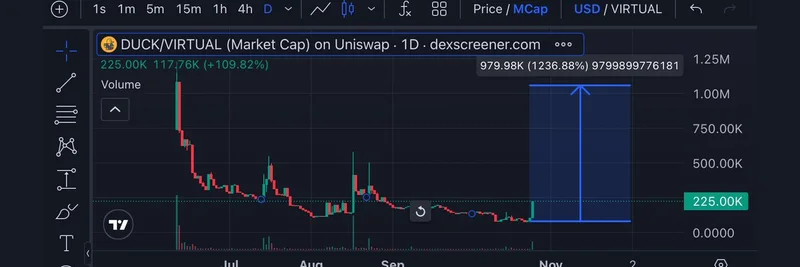In the fast-paced world of DeFi, where decentralized finance meets high-stakes decisions, Hyperliquid is making waves with its upcoming stablecoin ticker, USDH. For those new to this, Hyperliquid is a blockchain platform known for its perpetual futures trading, including popular meme token perps that attract traders looking for volatility and quick gains. The USDH ticker represents a native stablecoin that could revolutionize how value flows within the ecosystem, reducing reliance on external stables like USDC and funneling yields back into Hyperliquid's native token, HYPE.
Recently, a tweet from MONK (@defi_monk), a prominent voice in the space affiliated with Syncracy Capital, called out what he sees as misleading narratives around the USDH proposal vote. He argues that claims of a "rigged vote" in favor of Native Markets are not only dangerous but also intellectually dishonest. Let's break this down.
MONK highlights the strong credentials of Native Markets' team. Co-founder @Mclader brings experience from Goldman Sachs and BlackRock, plus years advocating for Uniswap's existence—a key player in DeFi. His partner @fiege_max is a true Hyperliquid native, which naturally appeals to validators. On top of that, their issuer is Bridge/Stripe, a powerhouse in payments that's highly motivated to succeed here.
As MONK points out, Native Markets wasn't even fully prepared for the announcement, scrambling with a quick Discord post instead of a polished report. This suggests genuine surprise rather than some backroom deal. He emphasizes that validators and big holders are taking this seriously, and the backlash might just stem from folks used to calling the shots now finding themselves sidelined.
This tweet sparked a flurry of replies, echoing the sentiment. For instance, @pana067 humorously noted that VCs with deep pockets could just pick another ticker if they're so committed—unless, of course, it's all opportunism.
One reply referenced a claim from another bidder suggesting the vote was fixed, but as @horndog put it, this is one of the most transparent governance debates in crypto in years—hardly the stuff of shady dealings.
The broader context? Hyperliquid opened an RFP for USDH, drawing bids from heavy hitters like Paxos (now with PayPal and Venmo integrations), Ethena (backed by BlackRock's BUIDL and pledging 95% revenue to the ecosystem), Frax, Agora, Sky, and more. Validators vote on September 14, with Polymarket odds currently favoring Native Markets at around 46%, followed closely by Paxos at 39%.
Critics like @0xemon have pushed back on Native Markets' Stripe partnership, calling it antithetical to crypto's permissionless ethos due to potential regulatory rollovers and Stripe's "woke" hires, including climate scientists.
Yet, as the debate rages, it's clear this process is bringing massive attention to Hyperliquid—free marketing that's boosting HYPE to new ATHs around $55. For meme token enthusiasts, a strong USDH could mean deeper liquidity in perp markets, making trades on volatile assets even more accessible.
To compare the key proposals at a glance:
| Issuer | Key Features | Revenue Share to Hyperliquid | Day-1 Liquidity/Incentives |
|---|---|---|---|
| Native Markets | Bridge/Stripe issuer, programmatic mint/redeem, HL-aligned team | 50% to Assistance Fund, 50% to growth | Not specified, but strong backing |
| Paxos | Regulated, PayPal/Venmo integrations, starts at 20% AF pledge scaling with TVL | 95% initially, capped at 5% after $5B | $20M incentives |
| Ethena | BlackRock BUIDL-backed, ≥95% net yield to HL, USDC migration | 95% to buybacks | $150M bid equivalent |
| Frax | DeFi-native, 0% take rate, on-chain T-bill yield | 100% net revenue | Parity with frxUSD, multi-chain mint/redeem |
| Sky | USDS-style, instant $2.2B USDC redemption | ~4.85% return on holdings | Multi-collateral PSM |
No matter who wins, this vote underscores blockchain governance at its best: transparent, contentious, and ultimately ecosystem-boosting. If you're trading memes on Hyperliquid, keep an eye on this—it could supercharge the platform's growth.
For more on emerging DeFi trends and how they intersect with meme tokens, check out our knowledge base at Meme Insider.

